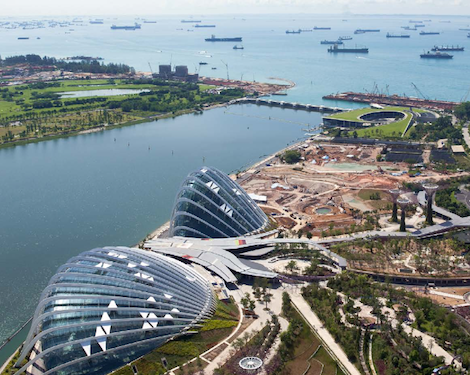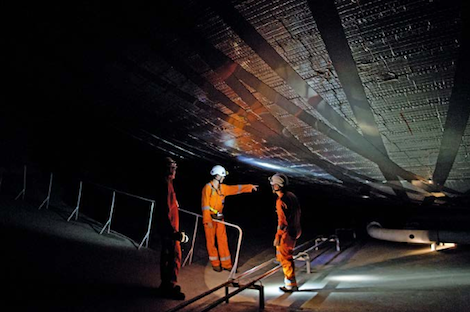Superyachts say no to LNG, despite increasing use in maritime industry
A Lloyd's Register report has proved an increasing adoption of LNG in the maritime industry, notably in Canada and Singapore, yet superyachts continue to resist the adopted of this gas technology.…
Serving only to confirm this viewpoint, Lloyd’s Register has released its 'Gas Technology' report, within which it closely investigates the adoption of LNG in the maritime industry and predicts those areas where its use is like to rapidly increase.
Not only has 2013 seen the delivery of the first deep-sea-capable and internationally trading LNG-fuelled vessel, the 2,800 passenger Viking Grace, but the same year has also seen Lloyd’s Register introduce an LNG fuel-specific training course for crew on board LNG-fuelled ships, explains the Lloyd’s Register report.
These movements towards the adoption of LNG by the maritime industry, however, have not catalysed movement in the superyacht sector. But activity in Canada – a nascent superyacht cruising destination – is promising and is the most related to, and potentially applicable for the superyacht sector to date. With a significant supply of natural gas, Canada finds itself in a handy position should it wish to utilise it – which it has, under the West Coast LNG Supply Chain Project. “The project establishes that ‘price, and price differential with other marine fuel is critical to the adopting of LNG by the shipping industry’”, explains the report, which adds, “the key finding of the report is that LNG is likely to be highly competitive as a marine fuel on the Canadian West Coast.”
Moreover, one of the superyacht industry’s emerging markets has taken significant steps toward the development of the world’s first practical operational procedures and standards for LNG bunkering operations. The Maritime and Port Authority (MPA) of Singapore, with Lloyd’s Register, has completed a study on the Technical Standards and Procedures for LNG Bunkering in the Port of Singapore – a port which, in 2012, retained its position as the world’s top bunkering port. As part of its report, Lloyd’s Register spoke to Captain M. Segar, the MPA’s assistant chief executive (operations), who noted: “There is an increasing necessity for the shipping industry to look at alternative sources of fuel and LNG is an affordable option that we should consider. With the information from the report, we are in a strong position to offer LNG bunkering in the Port of Singapore and we would like to share this significant progress with the industry.”
However, whilst promise lies in the fact that two of the largest movements the maritime industry has seen towards the adoption of LNG fuel have been from one increasingly popular cruising ground and the other, an emerging market, tangible activity in the superyacht industry remains non-existent. Nick Brown, marine communications manager at Lloyd’s Register, told SuperyachtNews.com: “So far as we are aware, no one has either yet ordered or started building an LNG-fuelled yacht, although at least one design has been presented. As well as the gas storage issue – both the space required for the higher volumes necessary to store gas and the need to address the question of proximity to accommodation areas – there is the question of the availability of gas bunkers as well as the practicality of providing such facilities in the atmosphere of a yacht marina. Right now it seems unlikely that LNG as a marine fuel will become widespread in the yacht sector in the near future. This is in contrast to the interest we are seeing in certain shipping trades.”
The full Lloyd's Register Gas Technology report can be downloaded here.
Profile links
NEW: Sign up for SuperyachtNewsweek!
Get the latest weekly news, in-depth reports, intelligence, and strategic insights, delivered directly from The Superyacht Group's editors and market analysts.
Stay at the forefront of the superyacht industry with SuperyachtNewsweek
Click here to become part of The Superyacht Group community, and join us in our mission to make this industry accessible to all, and prosperous for the long-term. We are offering access to the superyacht industry’s most comprehensive and longstanding archive of business-critical information, as well as a comprehensive, real-time superyacht fleet database, for just £10 per month, because we are One Industry with One Mission. Sign up here.
NEW: Sign up for
SuperyachtNewsweek!
Get the latest weekly news, in-depth reports, intelligence, and strategic insights, delivered directly from The Superyacht Group's editors and market analysts.
Stay at the forefront of the superyacht industry with SuperyachtNewsweek





